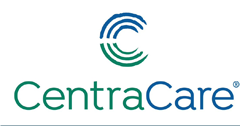Document Type
Article
Publication Date
5-2012
Abstract
BACKGROUND:
In an effort to evaluate the single agent activity of temsirolimus in previously untreated non-small-cell lung cancer, the North Central Cancer Treatment Group undertook a frontline "window-of-opportunity" study.
METHODS:
Patients received 25 mg of temsirolimus administered intravenously as a weekly 30 minute infusion, on a 4-week cycle. Based on a two-stage Fleming design, the treatment would be promising if at least four of the first 25 evaluable patients in stage I or at least six of the 50 evaluable patients at the end of stage II have a confirmed response. Fresh tumor biopsies were obtained to evaluate predictive markers of temsirolimus activity.
RESULTS:
A total of 55 patients were enrolled with 52 patients being evaluable. The median age was 64 years. Adverse events (grade 3/4) occurring in 33 patients included dyspnea (12%), fatigue (10%), hyperglycemia (8%), hypoxia (8%), nausea (8%), and rash/desquamation (6%). The clinical benefit rate was 35% with four patients achieving a confirmed partial response and 14 patients with stable disease for 8 weeks or more. The 24-week progression-free survival rate was 25%. Median progression-free survival and overall survival were 2.3 and 6.6 months, respectively. Expression of p70s6 kinase, phospho-p70s6 kinase, Akt, phospho-Akt, and phosphatase and tensin homolog mutation did not correlate with clinical outcome.
CONCLUSIONS:
Temsirolimus given as a single agent in frontline therapy in patients with non-small-cell lung cancer was tolerable and demonstrated clinical benefit but did not meet the primary objective in this study. Patient selection will be needed to enhance the efficacy.
Recommended Citation
Reuter, Nicholas F. MD, "Brief Report: A Phase II "Window-of-Opportunity" Frontline Study of the mTOR Inhibitor, Temsirolimus Given as a Single Agent in Patients with Advanced NSCLC, an NCCTG Study" (2012). Articles. 17.
https://digitalcommons.centracare.com/articles/17

